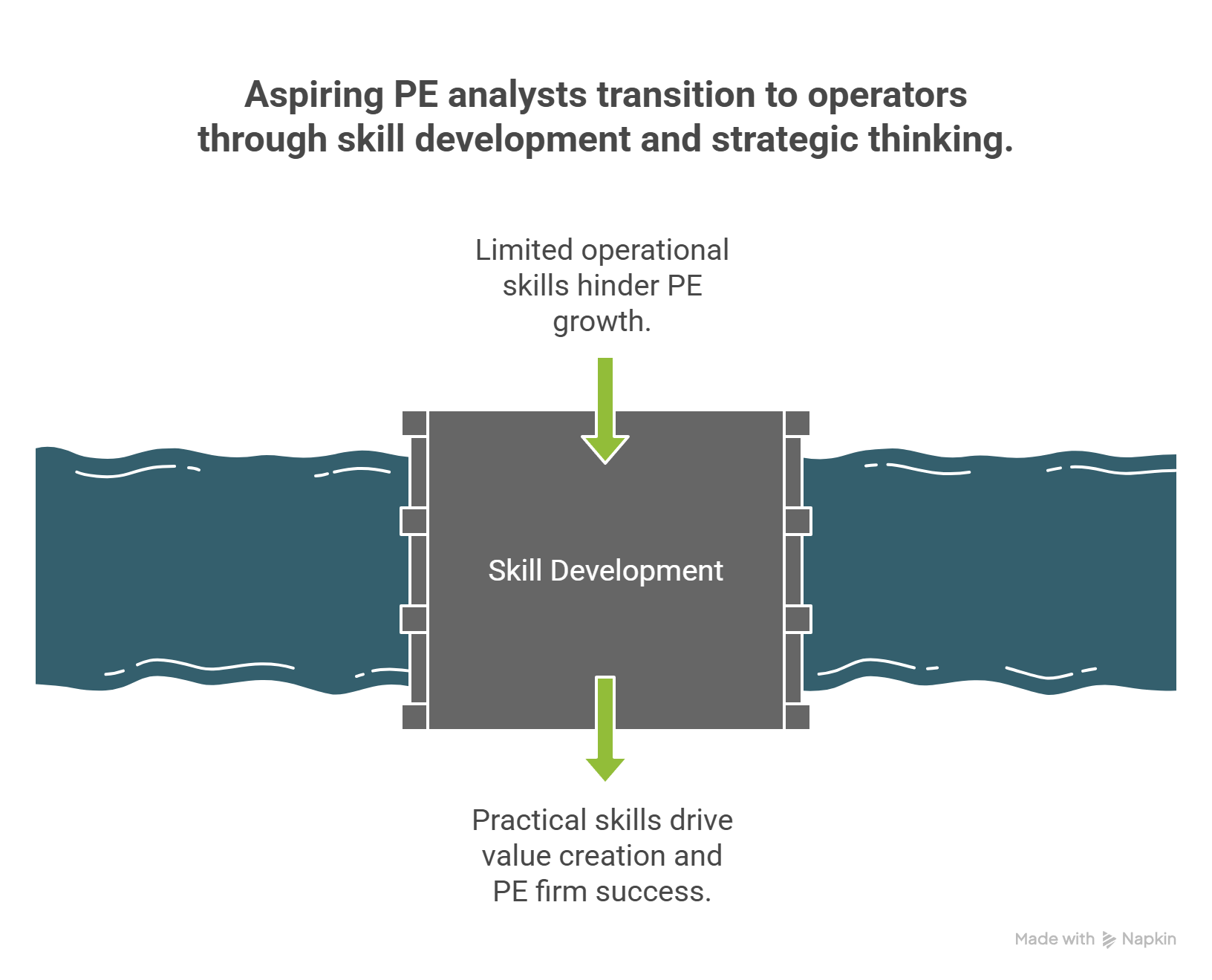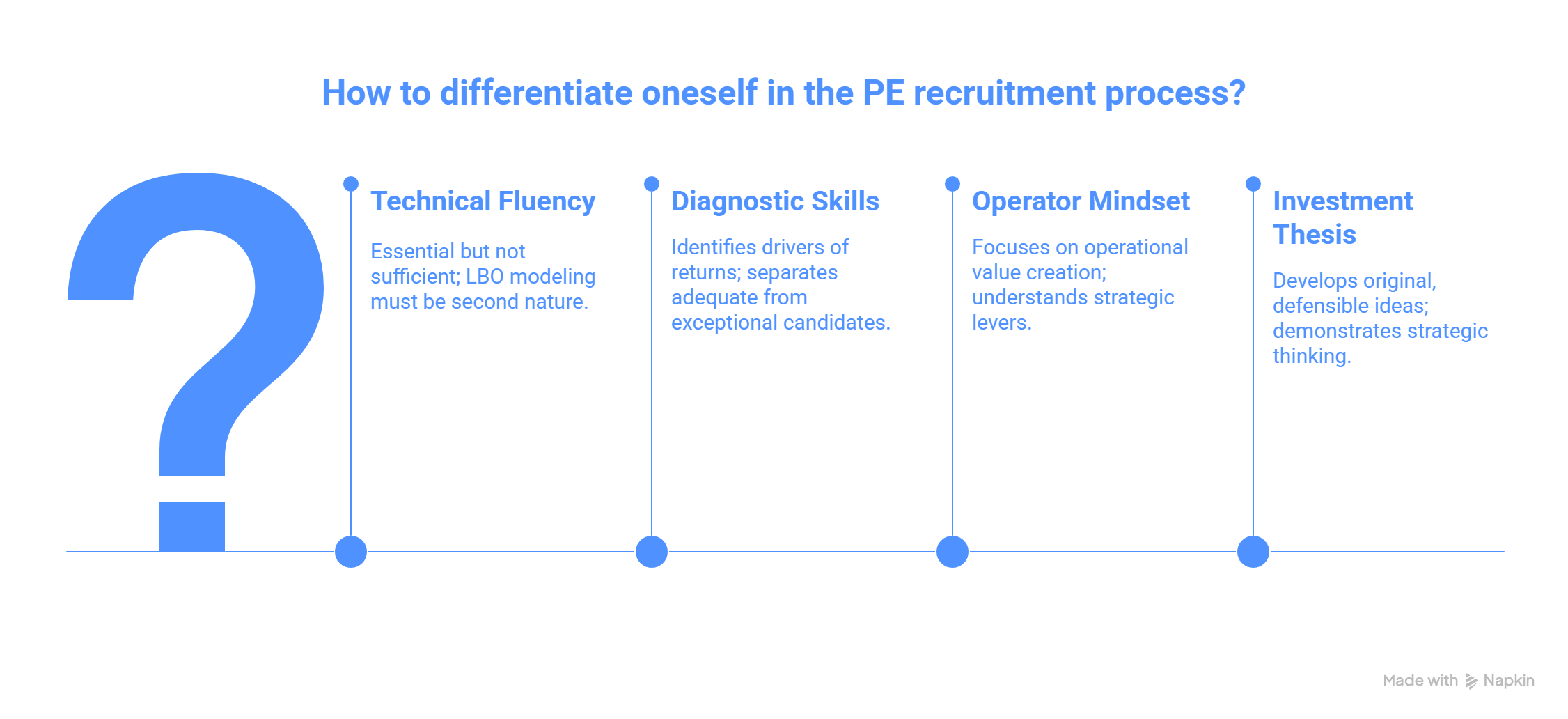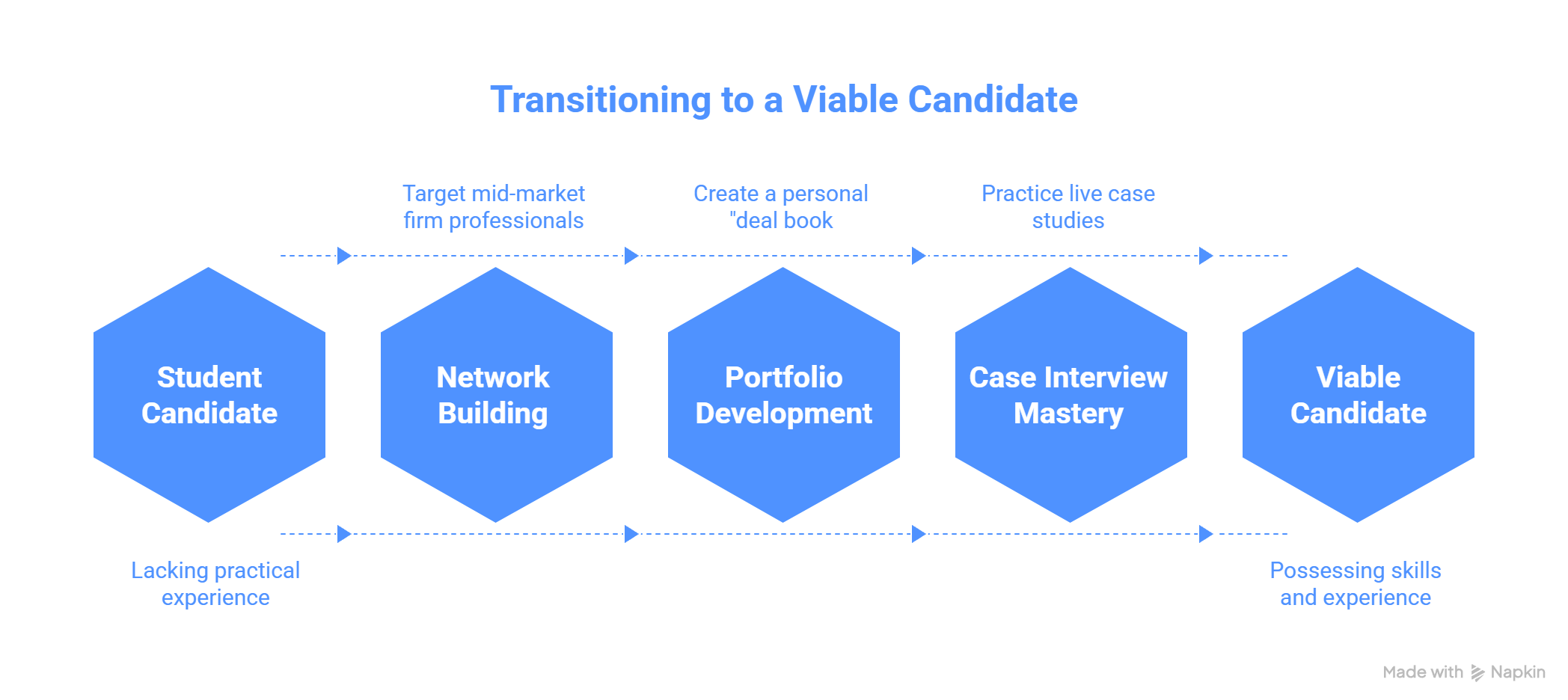The Human Career LBO: Engineering Your Entry into Private Equity
Oct 25, 2025
The trillion-dollar gates of private equity have never seemed more imposing. With Preqin data showing global PE unrealized value now at $8.6 trillion as of mid-2025, the competition for a single analyst seat has become a brutal exercise in human capital optimization. The old playbook—a stellar GPA, an investment banking internship, and a polished resume—is now merely the price of admission, not a guarantee of entry.
According to a 2025 EY Global Private Equity Survey, 76% of the largest PE firms emphasize that finding and retaining talent is critical to sustaining growth, prioritizing practical skills over traditional credentials. The message is clear: private equity isn't looking for students who can learn—it's looking for operators who can already contribute.

The Foundation: Technical Fluency as Table Stakes
Your financial modeling skills must be muscle memory, not classroom theory. The most frequently failed—and most critically tested—skill in PE interviews remains LBO modeling, according to training providers Wall Street Prep and Training The Street. But technical fluency alone is no longer enough.
The differentiator lies in moving from calculation to diagnosis. When you model an investment, can you identify whether returns are driven by revenue growth, multiple expansion, or debt paydown? According to recent insights from McKinsey's Global Private Markets Report, this ability to "articulate the qualitative story behind the quantitative output" separates adequate candidates from exceptional ones.
The assignment is straightforward but revealing: build a three-statement LBO model for a public company, then stress-test it. What happens if revenue growth slows by 200 basis points while margins compress? Then, write a one-paragraph memo summarizing the investment thesis and the top three risks. This exercise mirrors the actual work of a junior PE professional—not just running numbers, but telling the story behind them.
The Differentiator: The Operator Mindset
Private equity has evolved from financial engineering to operational transformation. The book "The Masters of Private Equity and Venture Capital" reveals that top investors spend 80% of their time on post-acquisition value creation planning, not deal sourcing. This shift demands a new language from candidates—the language of operational levers, not just financial metrics.
The most compelling candidates can discuss specific value creation drivers: pricing strategy optimization, sales force effectiveness, working capital management, and the strategic logic behind platform versus add-on acquisitions. They understand that EBITDA improvement comes from operational changes, not spreadsheet adjustments.
One of the most effective ways to demonstrate this mindset is to develop a credible, research-backed investment thesis. A survey by EY found that partners at leading PE firms value a candidate's "ability to generate original, defensible ideas" more than any other soft skill. Pick an industry—SMB SaaS, healthcare services, industrial technology—and develop a point of view on where consolidation or disruption is creating opportunity.

The 90-Day Execution Plan
The transition from student to viable candidate requires a systematic approach, broken into three 30-day sprints.
The first month should focus on network-building with purpose. Target Associates and Vice Presidents at mid-market firms—the professionals closest to the analysis work and hiring decisions. Your approach should be specific and insight-driven: "I've been studying the industrial technology space and was impressed with your firm's investment in Company X. I'm trying to understand how you approach pricing optimization post-acquisition."
The second month demands portfolio development. Create a personal "deal book" containing three concrete artifacts: a complex LBO model with a one-page summary, a one-page investment thesis on a public company, and a 100-day plan for a hypothetical acquisition. This portfolio transforms your abstract capabilities into tangible evidence.
The final month requires case interview mastery. Practice live case studies that simulate the actual analytical challenges PE firms face. The key isn't just getting the math right—it's structuring the problem logically, identifying the most critical issues, and driving toward an actionable recommendation.

The Human Element
Amid the technical rigor, the human differentiators remain decisive. Private equity is a team sport played with enormous stakes, and firms carefully assess cultural fit. Can you handle pressure without becoming brittle? Can you disagree without being disagreeable? Can you learn quickly from mistakes?
One mid-market PE partner noted, "We can teach someone to build a better model, but we can't teach curiosity, integrity, or resilience. We look for people who are naturally competitive but channel that energy into team success."
The Bottom Line
The private equity recruitment process is ultimately a mirror—it reflects your ability to synthesize complex information, form independent judgments, and communicate with precision under pressure. The most successful candidates understand that they're not students asking for a job; they're analysts-in-waiting, building a track record of commercial analysis.
The ultimate test question isn't about your GPA or your technical skills. It's this: "If we gave you a data room on a potential deal, what is the first thing you would look for to form a hypothesis on value creation?"
Your answer will reveal everything about whether you're prepared to contribute from day one in an industry that rewards only demonstrated capability, not untested potential. In the human LBO that is private equity recruiting, you are both the asset and the operator of your own career.
© VCII 2025 By Tracy Wong (www.vciinstitute.com)
We have many great affordable courses waiting for you!
Stay connected with news and updates!
Join our mailing list to receive the latest news and updates from our team.
Don't worry, your information will not be shared.
We hate SPAM. We will never sell your information, for any reason.


